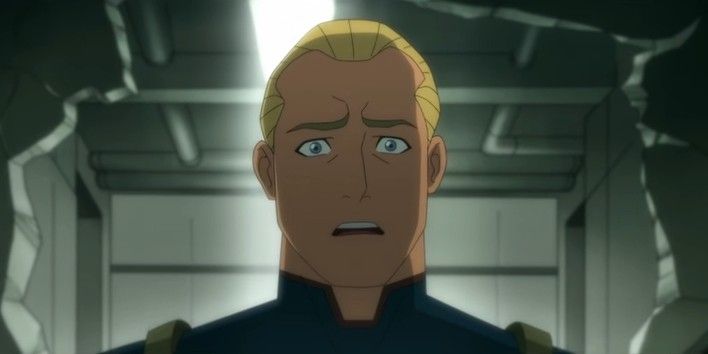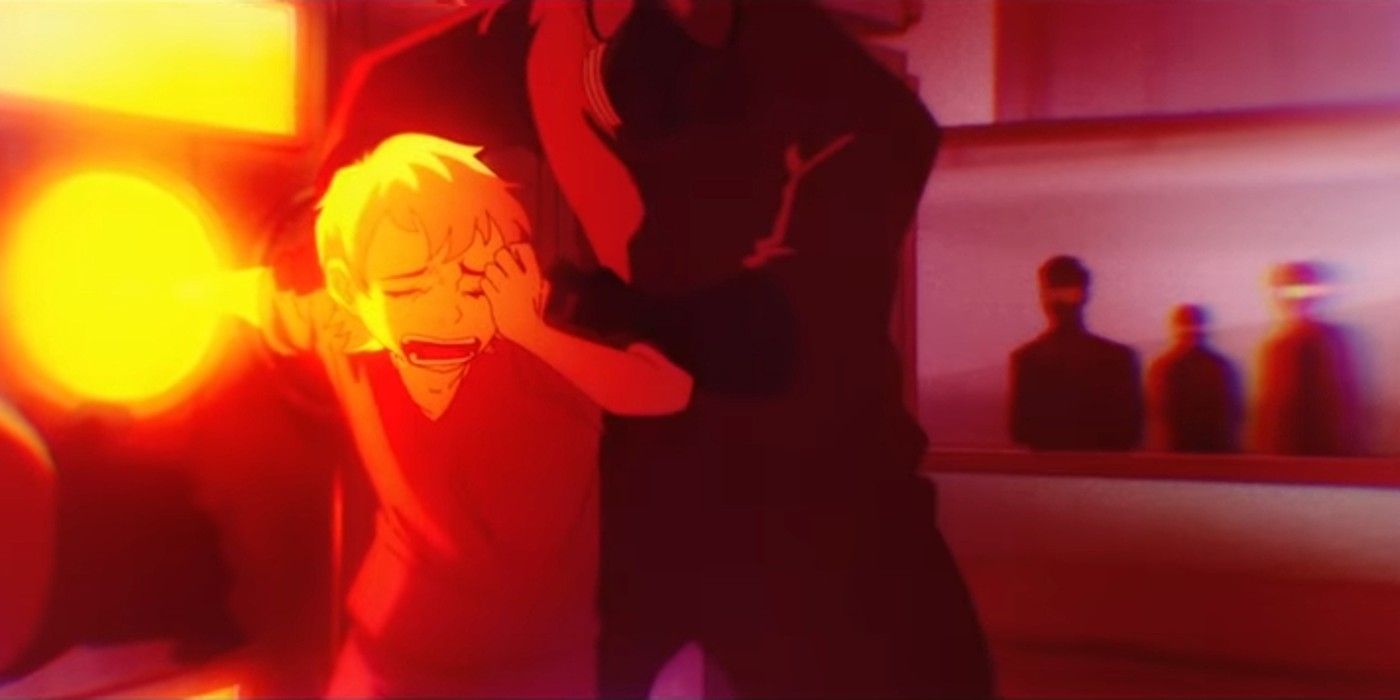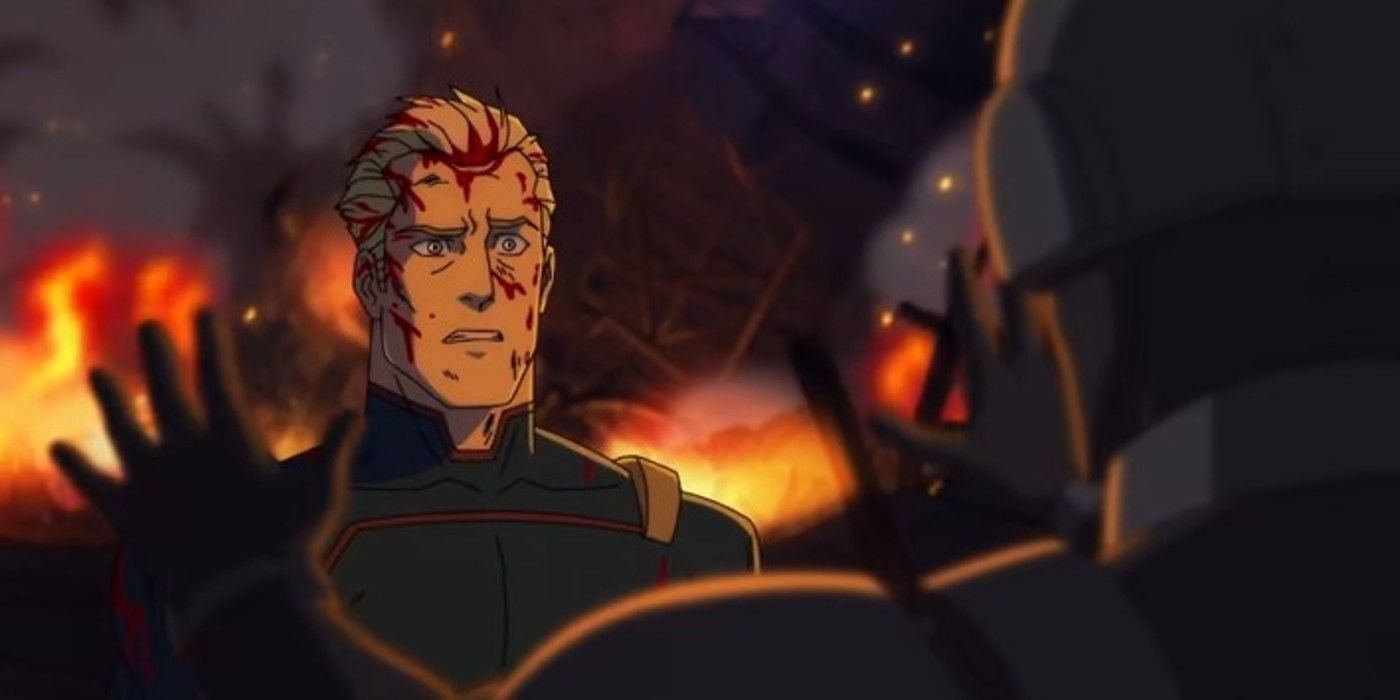WARNING: The following contains major spoilers for Prime Video's The Boys Presents: Diabolical, available for streaming now on Prime Video.
At first glance, The Boys Presents: Diabolical appears to have very little in common with its flagship series. However, the collection of animated shorts tethered to Garth Ennis' dark universe, uses episode 8 of the anthology, "One Plus One Equals Two," which sees Antony Starr reprise his iconic role as the sadistic Homelander, to bring the storyline of this character full circle.
Unlike his live-action counterpart, this Homelander is new to the limelight. He's nervous, exudes awkwardness and seems desperate to win hearts and minds by embodying the ideals of a classic, ultrapowerful do-gooder, an impossible task while under Vought's thumb. Written by Simon Racioppa and co-directed by Giancarlo Volpe and Jae Kim, the episode -- a tragic prelude to Homelander's monstrous downfall -- manages the one thing that seemed almost impossible, it humanizes the character.
The episode opens with a Vought International press event. The company is ready to unveil its latest -- and potentially greatest -- hero: a star-spangled superhuman called The Homelander. Unlike the silver-tongued manipulator of The Boys tv series, this version of the character seems unsure of himself. Made anxious by all of the attention, he's plagued by flashbacks of a truly horrific childhood. Much to the delight of Vought higher-ups, however, their hero manages to compose himself, effortlessly parroting the company's false narrative about a small town youth dominated by baseball.
After being cautioned by a younger Madeline Stillwell (Elisabeth Shue) to protect his spotlight from the Batman-esque Black Noir, the two are sent on their first "mission" together. A band of "terrorists" has taken hostages at a Vought-run chemical plant, and both heroes are sent in to protect company interests, something painfully true-to-form in The Boys' cynical universe.
While the live-action adaptation also touches on Homelander's childhood, and the image of an infant locked behind metal doors is a haunting one, there is little exploration of any phycological trauma. As child Homelander grows up, viewers are less inclined to sympathize with the boy as he purposely crushes several "mother-like" tutors with his bare hands, and more inclined to be legitimately terrified. Here, viewers are privy to the torture, to Homelander's deeply buried insecurities and to his very real pain.
His brutish live-action counterpart likely would've have gone in eyes blazing and obliterated everyone in his path but, the animated Homelander -- having dropped "the" from his name at Stillwell’s insistence -- behaves similarly to the heroes found in film, on tv and in comic books. He’s genuinely eager to do the job well, and doesn't intend to cause harm. He quickly finds, however, that a friendly grin and clever quips do little to defuse the situation. He also discovers that popular restraint and de-escalation tactics -- such as crushing a metal pipe around someone's waist, and heating up a loaded firearm -- have disastrous and deadly consequences.
Afraid, confused and backed into a corner, Homelander quickly finds himself surrounded by bodies and looking for someone to blame. The panicked supe sets his sights on Black Noir, believing that Vought's twisted rendition of The Dark Knight will tell the truth, effectively ruining his standing with the company. As it turns out, Black Noir has no such intentions. After an intense fight and massive destruction, the hero in black murders the remaining hostage in cold blood, handing Homelander a note.
The episode closes much like it began. A blood-spattered Homelander takes questions from the press, unsure of his words at first, knowing that his story is complete farce. In a vague half-truth, he apologizes for his failure to save anyone. Unfortunately, Homelander becomes all too comfortable with the lie once undeserved praise is heaped onto him, thus beginning his inevitable descent into narcissism, cruelty and madness. Not unlike its predecessor, the disturbing short proves that -- much like heroes -- monsters aren't born, they're made.



